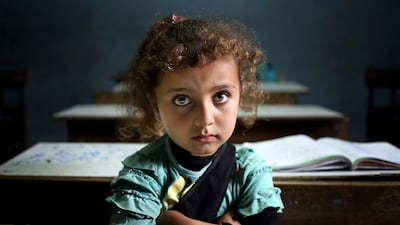Governments and aid agencies have been unable to account for millions of dollars in school aid for Syrian refugee children in Lebanon, Jordan, and Turkey, a report released on Thursday shows.
More than half a million school-age Syrian refugees in the three countries were out of school last year, in part because of severe funding gaps, the report by Human Rights Watch said. There are at least 1.6 million Syrian children refugees in the region.
In Lebanon, classes for Syrian refugee children are packed, and students attend school in half-day shifts in order to free up classroom space for enrolment. Even so, more than half the school-age Syrians in the country are not attending school, according to Lisa Abou Khaled, a communications officer for the UN refugee agency.
The challenges include pulling impoverished children away from work, finding money to pay for their transportation and supplies, and helping students feel safe and comfortable in schools.
Human Rights Watch says late or missing aid has compounded those problems.
____________________________________
Read more: Refugee crisis deteriorating rapidly as 3.5 million children are left without education
_____________________________________
The US government aid agency USAID, for example, reported it had given $248 million (Dh911m) in school aid to Jordan last year, but the Jordanian government reported receiving only $13m. A separate USAID database tracked only $82m in disbursements that year.
Aid agencies in Lebanon are trying to fill a $25m budget deficit to get students back in school this year, Ms Abou Khaled said. Human Rights Watch said donor nations fell $97m short of their pledges to provide $250m for schooling in Lebanon last year.
The six largest donors are the European Union, the United States, Germany, the United Kingdom, Japan and Norway.
Human Rights Watch researcher Simon Rau, one of the authors of the report, said more transparency was needed to identify the funding gaps.
"Refugee hosting countries and donors have promised time and again that Syrian children will not become a lost generation," said Mr Rau. "However, that's what's happening again."

